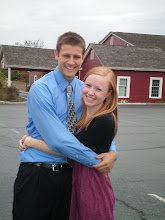My perception of performance has greatly changed after reading ‘Chapter 5: Performance’ in Living Folklore: An Introduction to the Study of People and Their Traditions by Martha C. Sims and Martin Stephens. This segment explains that performances are not always the extravagant events that we have come to label them as in our culture. Performances take place several times throughout everyday experiences. Certain “Markers” or signals open up the way for performances to take place even in casual settings. For example, I would have never thought of a joke as a form of performance before I read this text. But now, it makes sense to me why certain jokes would be labeled as such. The familiar phrase “Knock-Knock” opens up the situation for the joke teller to display or perform his sense of humor or wit. Even a simple conversation between friends can be deemed as a performance. With key phrases such as, “Did you hear…” or “Can I just say…” performances are about to take place through the telling of a story. I had never thought of such common occurrences to be identified as a performance, but with a vast definition that performance has acquired, everyone can be called great performers.
This post is in response to the Chapter 5 Reflection Question.
